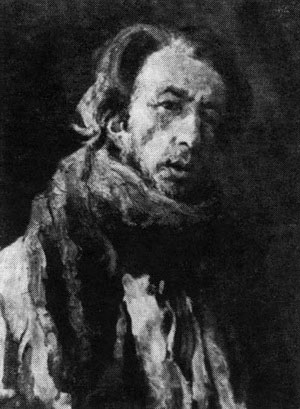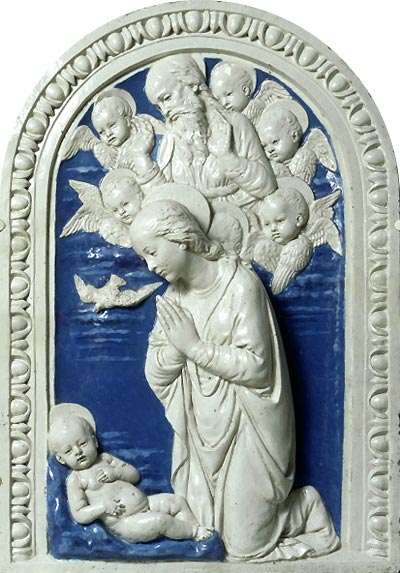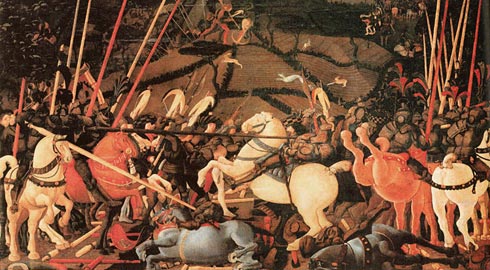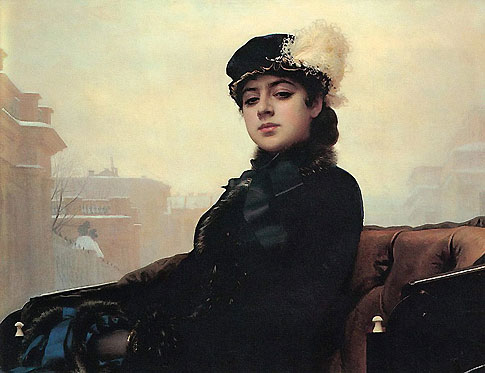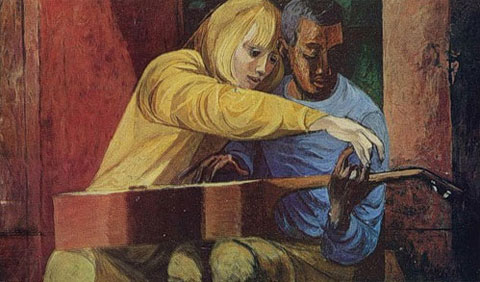henceforth become
Luca della Robbia – devotional service to art
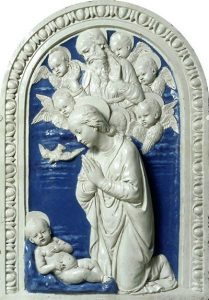 The whole long life of Luke della Robbia was dedicated to serving the arts. The sculptor was born in Florence in 1399 or 1400. He made many works that rightfully occupy a prominent place in the history of the sculpture of the Renaissance. Luka della Robbia’s hard work, his devotion to art was emphasized by one of his first biographers, D. Vasari: “… completely leaving the jewelry business, he (Luca della Robbia) gave himself up to sculpture and did not do anything else, working with a chisel all day nights And he did it with such diligence that, often feeling at night that his legs were frozen, he, in order not to depart from the drawing, warmed them, shoved them into a basket with chips … ” Continue reading
The whole long life of Luke della Robbia was dedicated to serving the arts. The sculptor was born in Florence in 1399 or 1400. He made many works that rightfully occupy a prominent place in the history of the sculpture of the Renaissance. Luka della Robbia’s hard work, his devotion to art was emphasized by one of his first biographers, D. Vasari: “… completely leaving the jewelry business, he (Luca della Robbia) gave himself up to sculpture and did not do anything else, working with a chisel all day nights And he did it with such diligence that, often feeling at night that his legs were frozen, he, in order not to depart from the drawing, warmed them, shoved them into a basket with chips … ” Continue reading
Leah Grundig – the art of anger and struggle
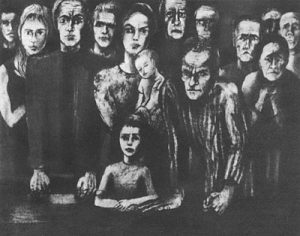 Expressive ink drawings, expressive genre compositions and portraits made with black chalk, aggressive engravings based on the confrontation of light and shadow … figures of the unemployed, touching images of proletarian children and women, exhausted by fear and need. Other sheets show working demonstrations and meetings, heated debates and discussions. The German artist Lea Grundig was vividly and accurately embodied in the plight of the workers and the ripening feeling of protest in their ranks during the dark days of the fascist nightmare. Continue reading
Expressive ink drawings, expressive genre compositions and portraits made with black chalk, aggressive engravings based on the confrontation of light and shadow … figures of the unemployed, touching images of proletarian children and women, exhausted by fear and need. Other sheets show working demonstrations and meetings, heated debates and discussions. The German artist Lea Grundig was vividly and accurately embodied in the plight of the workers and the ripening feeling of protest in their ranks during the dark days of the fascist nightmare. Continue reading
Vincent van Gogh in Holland
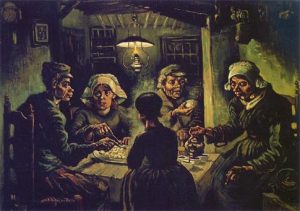 In 1879, when the epidemic of typhoid fever and fever in a multitude mowed people, Borinage’s miners marveled at the young lord, who fearlessly avoided the infected shacks, nursing the sick and maimed. This man was Vincent Van Gogh. Traveling over half of Europe, he ended up as a missionary at the coal mines. When the disaster at the mine was followed by a massive explosion of indignation of the miners, Vincent, their defender, entered into open conflict with the administration. “For almost two years,” he wrote bitterly about this to his brother, “I had to go through something in Borinage that did not look like a pleasure walk.” The unrest of the miners was suppressed, and the obstinate preacher was denied a seat. Continue reading
In 1879, when the epidemic of typhoid fever and fever in a multitude mowed people, Borinage’s miners marveled at the young lord, who fearlessly avoided the infected shacks, nursing the sick and maimed. This man was Vincent Van Gogh. Traveling over half of Europe, he ended up as a missionary at the coal mines. When the disaster at the mine was followed by a massive explosion of indignation of the miners, Vincent, their defender, entered into open conflict with the administration. “For almost two years,” he wrote bitterly about this to his brother, “I had to go through something in Borinage that did not look like a pleasure walk.” The unrest of the miners was suppressed, and the obstinate preacher was denied a seat. Continue reading
